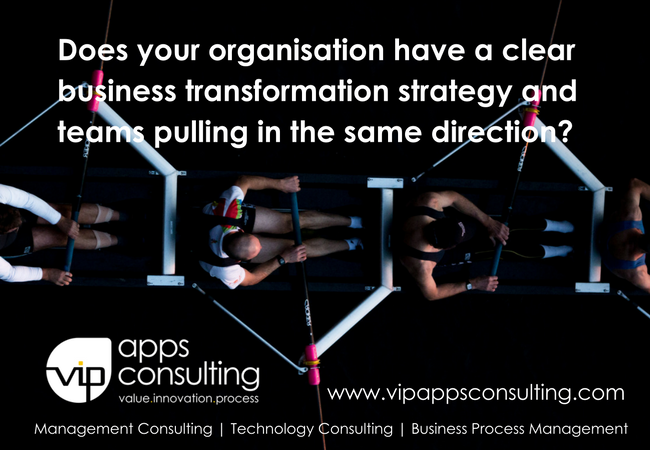Companies in the finance and leasing industry, focused on digital strategies and are looking to CFOs to help them develop the strategies needed to respond to technology innovation, build their business transformation plans and lead the change.
Making business transformation projects a reality is not easy. In today’s market, characterised by extraordinary urgency and tougher competition, C-level executives have faced on more than one occasion that change can fail even in the most carefully planned program. A KPMG’s study showed that 96 percent of organisations internationally are in the midst of transformation, with 66 percent starting or completing at least one transformation initiative in the past two years. In the financial services industry, top drivers for business transformation are becoming a digital business and meeting continually changing regulatory requirements.
A company’s transformation is a holistic, top-priority effort that requires all the attention from the management team to reach its objective, with technology innovation driving business results, by engaging with key transformation areas: the customers, the development of new products and services, and how employees do their work. CEOs are placing the CFO as a strategic partner, at the heart of organisational decision because of their knowledge of the figures and holistic view of the company, place them as one of the primary drivers of change.
Why do these initiatives fail?
The numbers on the success rates of major transformation initiatives are discouraging. The disruptive and interconnected characteristic of these transformation initiatives, affect the company as a whole, creating challenges and tensions in the organisation. As technology transformations start and end with the business, reasons for failure span from lack of ownership definition and management support, to poor implementation practice, lack of resources and capabilities accompanied by employee resistance. In our experience, the evolving role of the CFO plays a fundamental part in the success of business transformation initiatives, as they are probing to be the best placed to understand what business transformation means.
The CFO’s key role
Leading a major business transformation takes a strategic vision and the close partnership with the CEO and other business leaders. The CFO sits at the intersection of finance management, HR, strategy, and technology. This position enables CFOs to bring deep financial expertise to business transformation discussions, focusing the conversation on the creation of business value.  The Finance and Planning teams receive real-time insights and data to monitor and continuously assess how market and customer behaviour impacts it in the business model. The CFO can take the team through a process by which it builds a commitment to an agenda accompanied by a plan that enables to move beyond the status quo, generating the changes that are necessary for the initiative to be successful. Because of its impact business transformation initiatives need to be included in the financial processes, budgeted and therefore as part of the forecast; it becomes part of the company’s new business model. Here are two strategic areas where CFOs and finance team with an agile change-agent mentality, create the foundations that strengthen the value proposition in the business transformation in their companies:
The Finance and Planning teams receive real-time insights and data to monitor and continuously assess how market and customer behaviour impacts it in the business model. The CFO can take the team through a process by which it builds a commitment to an agenda accompanied by a plan that enables to move beyond the status quo, generating the changes that are necessary for the initiative to be successful. Because of its impact business transformation initiatives need to be included in the financial processes, budgeted and therefore as part of the forecast; it becomes part of the company’s new business model. Here are two strategic areas where CFOs and finance team with an agile change-agent mentality, create the foundations that strengthen the value proposition in the business transformation in their companies:
IT and Finance working in tandem
Culture and sustainable change management
 Despite the understanding of the importance of change and having the authority to influence it, a common problem in business transformation is that managers lack sufficient operational insight to steer it effectively.The impact of poor change management, not only translate in the transformation not being delivered, but also in the waste of resources and the team exhaustion. Managers learn about problems too late, failing to articulate the case for change consistently. Change should be continuous, stirring how people think about their work and empowering them to look for potential improvements. CFOs are in a position to lead and maintain momentum for change as well as identify roadblocks to support the transformation, embedding a culture of continuous improvement, critical to embrace change and develop capabilities to drive transformation themselves.
Despite the understanding of the importance of change and having the authority to influence it, a common problem in business transformation is that managers lack sufficient operational insight to steer it effectively.The impact of poor change management, not only translate in the transformation not being delivered, but also in the waste of resources and the team exhaustion. Managers learn about problems too late, failing to articulate the case for change consistently. Change should be continuous, stirring how people think about their work and empowering them to look for potential improvements. CFOs are in a position to lead and maintain momentum for change as well as identify roadblocks to support the transformation, embedding a culture of continuous improvement, critical to embrace change and develop capabilities to drive transformation themselves. 
VIP Apps Consulting combines experience in the finance function and comprehensive knowledge of technology innovation, to help our clients in the leasing and financial services industry identify those areas of improvement in their digital transformation journey.
Keep up to date with the latest technology trends and other industry news by following us on LinkedIn








